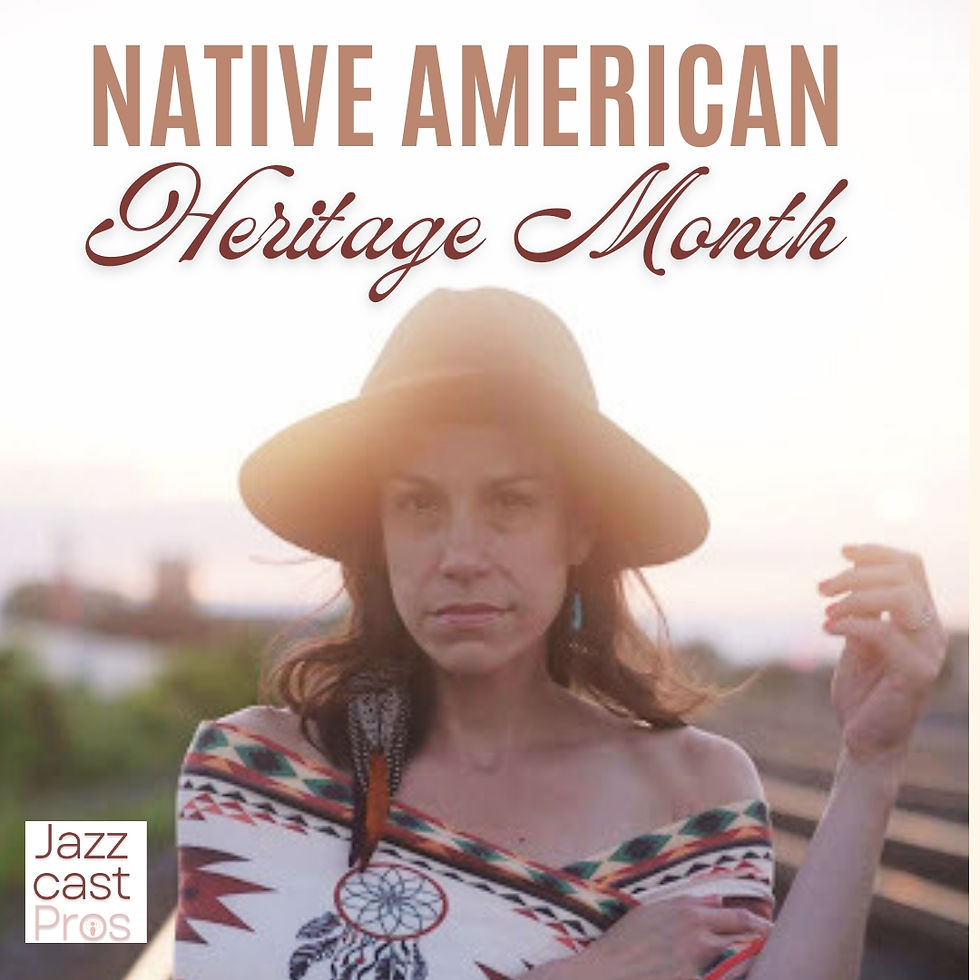🪶 The First Thanksgiving: A Native American Perspective
- Jazzy T

- Nov 28, 2024
- 3 min read
Updated: Dec 7, 2024
Every November, the United States observes Thanksgiving on the fourth Thursday of the month, a holiday often romanticized as a harmonious feast between the Pilgrims and the Wampanoag people. However, from a Native American perspective, the historical narrative tells a more nuanced story of survival, cultural exchange, and, ultimately, colonization.

🌽 The Truth Behind the Feast
The "First Thanksgiving" of 1621 was not the beginning of a national tradition but rather a three-day harvest celebration involving the Pilgrims of Plymouth Colony and the Wampanoag people.
The Wampanoag are a Native American tribe who have lived in the Northeastern Woodlands for over 12,000 years. Their name translates to "People of the First Light".
The Wampanoag, led by Chief Massasoit, had forged a fragile alliance with the Pilgrims, offering critical assistance in the form of food and agricultural knowledge that enabled the settlers to survive their first year.
For the Wampanoag, the arrival of Europeans marked the start of profound changes, including the spread of diseases that decimated Native populations and the eventual loss of their lands and sovereignty.
🦃 A More Complex Legacy
While the Thanksgiving feast symbolizes gratitude and sharing for many, it also serves as a painful reminder for Native Americans of what was lost in the centuries that followed. The Wampanoag people and other tribes faced broken treaties, forced displacement, and attempts to erase their cultures.
Today, Native communities across the U.S. observe National Day of Mourning on Thanksgiving to honor their ancestors and shed light on the historical realities often overlooked in mainstream narratives.
🏙️ State Names with Indigenous Roots
The influence of Native American culture extends far beyond Thanksgiving. The names of half of all U.S. states—25 in total—have Native American origins, reflecting the deep connection between Indigenous peoples and the land they have inhabited for millennia.
Here are the states and their meanings:
A-D
Alabama: Named after the Alabama or Alibamu tribe, meaning "herb gatherers."
Alaska: From the Aleut word "alaxsxaq," meaning "the mainland."
Arizona: Derived from the O'odham word "alĭ ṣonak," meaning "small spring."
Connecticut: From the Mohican word "quonehtacut," meaning place of long tidal river.
H-I
Hawaii: From the Hawaiian language, meaning "homeland."
Illinois: From the Illinois word "illiniwek," meaning "men."
Iowa: Named after the Ioway tribe, meaning "gray snow."
K-M
Kansas: Named for the Kansa tribe, meaning "south wind people."
Kentucky: Possibly from the Iroquoian word "Kentake," meaning "on the meadow."
Massachusetts: From the Algonquin word "Massadchu-es-et," meaning "great-hill-small-place."
Michigan: From the Chippewa word "Michigama," meaning "large lake."
Minnesota: From the Dakota word “Minisota,” meaning "white water."
Mississippi: From the Choctaw, meaning “Great water” or “Father of Waters.”
Missouri: Named for the Missouri tribe, meaning "those who have dugout canoes."
N-O
Nebraska: From the Otoe word Nibraská, meaning "flat water."
North Dakota & South Dakota: Both named for the Dakota Sioux tribe, meaning "allies" or "friends."
Ohio: From the Seneca word Ohi’, meaning "good river" or "large creek."
Oklahoma: From the Choctaw words okla (people) and humma (red): red people.
T-W
Tennessee: From the Cherokee village name Tanasi, meaning uncertain but possibly "a bend in the river."
Texas: From the Caddo word Taysha, meaning "friends" or "allies."
Utah: Named for the Ute tribe, meaning "people of the mountains."
Wisconsin: From the Miami word Meskonsing, meaning "it lies red," referring to sandstone formations along the Wisconsin River.
🌟 A Legacy Worth Preserving
The names of these states and their cities are more than geographic markers; they are living reminders of the deep and enduring connection between Native American cultures and the land. From rivers to mountains, Indigenous languages and traditions continue to shape the identity of the United States.
This Thanksgiving, take a moment to reflect on the complex history of Native peoples in America, honor their contributions, and explore ways to support their communities today.
🌐 Learn more about Native history and culture at:
On Native Land Art Exhibit: Open through December 13 at Rochester City Hall.
Native Made Market: Small Business Saturday November 30 featuring Indigenous goods and traditions at High Falls – 60 Brown’s Race, Rochester NY 14614
What does Thanksgiving mean to you? Share your thoughts in the comments!





In order to do better, we can never forget our collective history. The actual facts, not just the feel good moments. The horrendous, brutal parts as well. Imo it's the only path forward. Thank you for sharing facts.